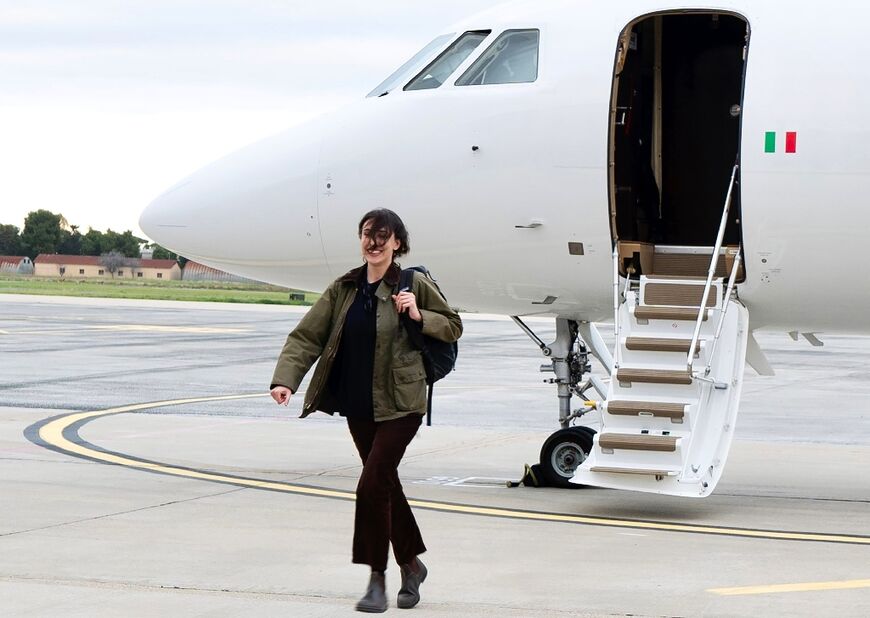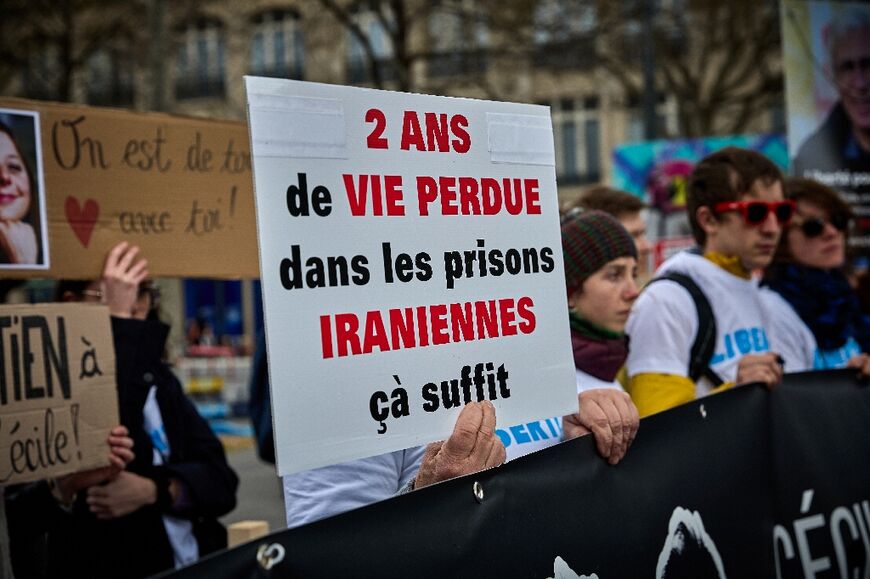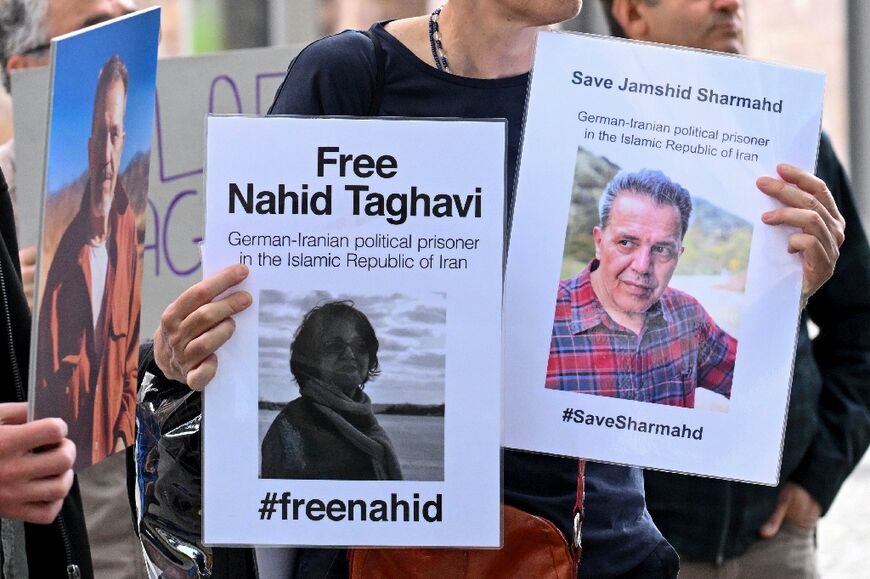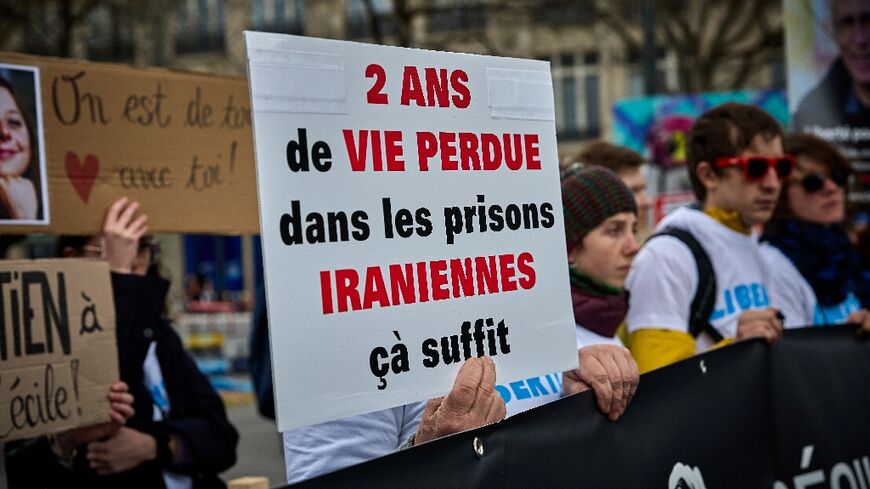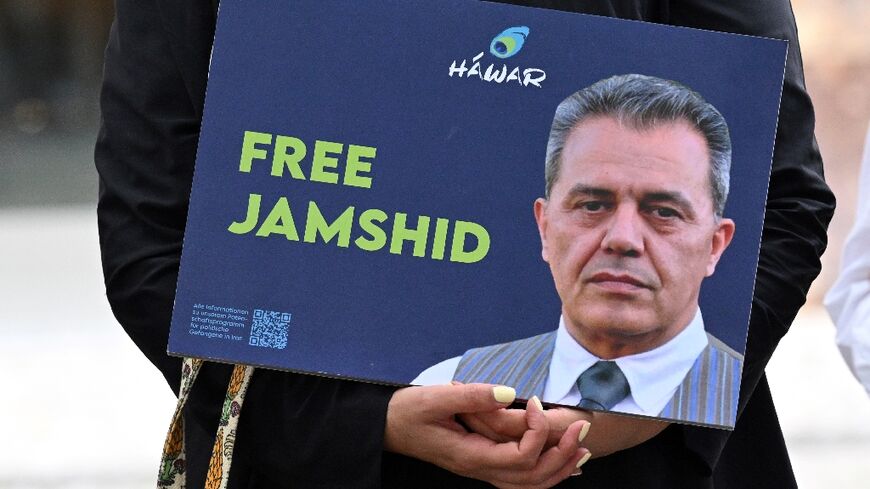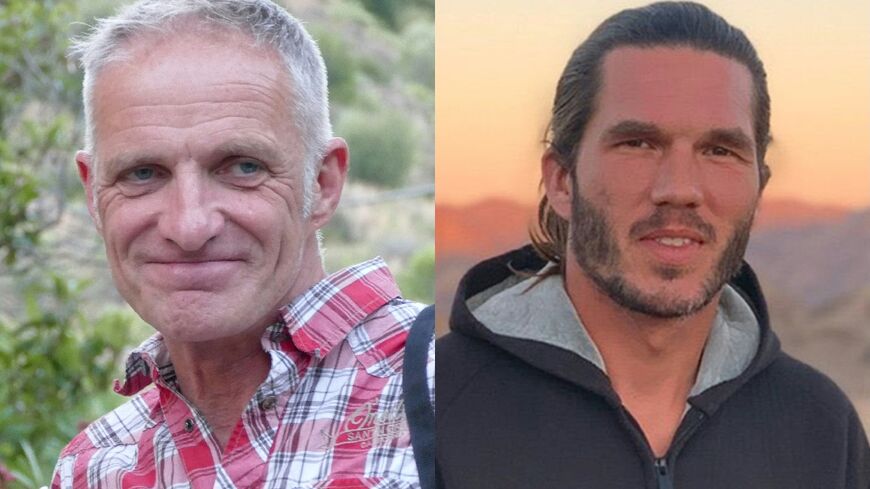German held in Iran released as 'exhausted' Frenchman reveals identity

A German-Iranian woman held in Iran for over four years has returned to Germany, her family said Monday, as a Frenchman detained by the Islamic republic since October 2022 revealed his identity in an audio message and said he was exhausted by his ordeal.
Western countries have for years accused Iran of detaining their nationals on trumped-up charges in a policy of state hostage-taking to use them as bargaining chips to extract concessions.
Iran announced on Sunday that a national held in Italy on a US extradition warrant had returned home. Days earlier, an Italian journalist was released from a Tehran jail, following intense diplomatic efforts by Rome.
This is a hugely sensitive moment in relations between Iran and the West, days before US president-elect Donald Trump comes to power. Iran is set Monday to hold talks on its contested nuclear programme in Geneva with European powers France, Britain and Germany.
German-Iranian woman Nahid Taghavi, 70, returned to Germany on Sunday after four years of detention in Iran, her family said.
Taghavi, a long-time activist who campaigned for women's rights and freedom of expression, was arrested in Tehran in October 2020. In August 2021, she was sentenced to 10 years and eight months in prison for participating in an outlawed group.
"Words cannot describe our joy," her daughter Mariam Claren said. "At the same time, we mourn the four years that were stolen from us and the horror she had to endure in Evin prison," she added.
Her release comes months after the death of Iran-born German citizen Jamshid Sharmahd sparked a diplomatic dispute between Tehran and Berlin, with Germany recalling its ambassador and closing three consulates in the country.
Sharmahd, abducted in the United Arab Emirates in July 2020 by Iranian agents, according to the family and the UN Working Group on arbitrary detention, was executed on October 28 on the charge of "corruption on earth", according to the news site of the Iranian judiciary.
But the judiciary later said while his execution was imminent that he had died before it could be carried out.
- 'Running out' -
French national Olivier Grondeau, 34, had previously only been identified by his first name and French authorities had not released details of his case.
In an audio message aired on France Inter on Monday, Grondeau fully identified himself and warned that he and the other two French detainees held in Iran were "exhausted".
The other two French nationals are teacher Cecile Kohler and her partner, Jacques Paris, who were detained in May 2022. They are accused of seeking to stir up labour protests, accusations their families have vehemently denied.
"You, who have the power to influence this matter, hear this truth," he said in the audio message, apparently addressing the French authorities.
"Cecile's strength, Jacques' strength, Olivier's strength -- it is all running out," he said. "Your responsibility is called upon to ensure the survival of three human beings," he said.
Grondeau was arrested in Shiraz, in southern Iran, in October 2022, and sentenced to five years in prison for "conspiracy against the Islamic republic", his mother Therese Grondeau told France Inter.
His family rejects the charges, describing Grondeau as a passionate fan of Persian poetry travelling to Iran on a tourist visa as part of a world tour.
On Friday, France summoned the Iranian ambassador to protest Tehran's holding of the trio, describing them as "state hostages".
- 'Intense work' -
Italian journalist, Cecilia Sala, arrested and jailed in Iran since December, was freed and returned to Rome on January 8.
Her swift release -- in contrast to the prolonged detention of the French nationals -- was the result of "intense work through diplomatic and intelligence channels" by Prime Minister Giorgia Meloni's government, her office said.
Meanwhile Iran announced on Sunday that its national Mohammad Abedini, 38, had returned home after his arrest in Italy last month at the behest of the United States.
The US accused him of supplying sophisticated drone navigation technology to Iran's military. Tehran denied any link between the cases of Sala and Abedini.
Foreign ministries whose nationals have been held by Iran are known to sometimes advise families to keep a low profile and not announce the arrest of their loved ones publicly, in the hope the situation can be resolved behind the scenes.
Rights groups say this means Iran may be holding other Western nationals whose cases have yet to be publicised.
Among those known to be held is Iranian-Swedish academic Ahmadreza Jalali, held since 2016 and sentenced to death on espionage charges his family strongly rejects.


